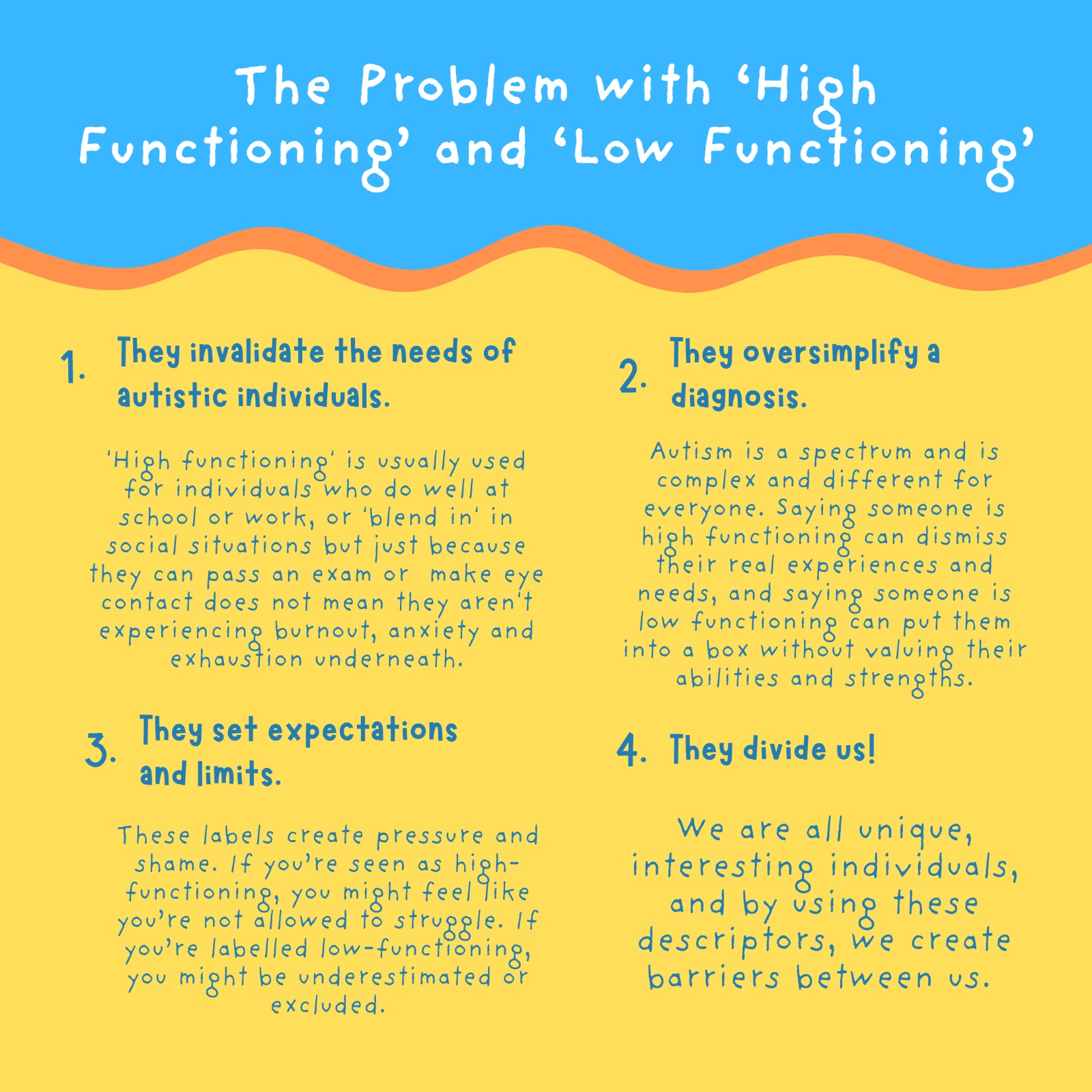Years ago, the terms ‘high functioning’ and ‘low functioning’ were commonly used to differentiate between autistic individuals, as well as the diagnosis of ‘aspergers’, which was thought of as either ‘mild autism’, or used interchangeably with ‘high functioning autism’. Nowadays most people avoid these terms, and they’re not officially used by health professionals, because people have become aware of how harmful and damaging they are. I know some individuals do still use these terms, but personally I find them incredibly unhelpful, and wanted to explain why.
- They invalidate the needs of autistic individuals. ‘High functioning’ is usually used for individuals who do well at school or work, or ‘blend in’ in social situations but just because they can pass an exam or make eye contact does not mean they aren’t experiencing burnout, anxiety and exhaustion underneath.
- They oversimplify a diagnosis. Autism is a spectrum and is complex and different for everyone. Saying someone is high functioning can dismiss their real experiences and needs, and saying someone is low functioning can put them into a box without valuing their abilities and strengths.
- They set expectations and limits. These labels create pressure and shame. If you’re seen as high-functioning, you might feel like you’re not allowed to struggle. If you’re labelled low-functioning, you might be underestimated or excluded.
- They divide us! We are all unique, interesting individuals, and by using these descriptors, we create barriers between us.
What should you do instead?
Well, simply, acknowledge that we are all different and that every person is an individual. Everyone deserves to be understood and accepted for who they are. Describe people by their own strengths and weaknesses, and ask about the language they like to use.
And is this backed up by anything?
Yes, research! For example, an Australian study recently investigated IQ and functional level, and found that individuals who would have been called ‘high functioning’ often have marked challenges with their everyday skills relative to what we would typically expect given their IQ.
In other words, they found that IQ was a poor predictor of someone’s functional level. Their conclusion was that children given this ‘high functioning autism’ label, despite being presumed to have better functioning, exhibit far greater challenges with everyday skills than this label would suggest.
Other studies say the same – that intelligence or exam performance does not indicate functional ability – and there’s also lots of evidence that the terms create pressure and have negative impacts on the self esteem of individuals.
What do you think?
Research used:
https://www.autismawareness.com.au/aupdate/why-we-should-stop-using-the-term-high-functioning-autism
https://journals.sagepub.com/doi/abs/10.1177/1362361319852831
https://psychiatry-uk.com/higher-or-lower-why-using-functional-labels-to-describe-autism-is-problematic/



Leave a Reply